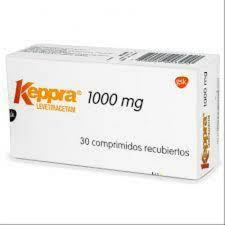
Like with autism, this is a personal issue for me. Parkinson’s disease has been in my family for a long time: my mother, my maternal uncle and maternal grandfather passed away after a long struggle with this condition. Unfortunately, I had no idea about homeopathy back then and so the only choice we had was to follow conventional medicine, which, then as well as now, does not have a lot to offer.
So what is PD? It is a progressive neurological condition and there is no cure. It doesn’t affect everybody in the same way, therefore the symptoms may vary. Most people associate PD with “tremors” of hands for example. However, my mother neved had that symptom; on the contrary, her problem was stiffness of movement, that became more and more of a problem, until she was eventually bed-ridden.
There are 5 recognisable stages of this condition:
In stage one, the earliest stage, the symptoms of PD are mild and only seen on one side of the body. There may be some impairment of movements. It is very difficult to diagnose at this stage.
This is when speech abnormalities start; the voice gets lower, trouble pronouncing words, even slurring. Movements get slower. This is when a doctor would be able to diagnose the condtion. I remember watching my mother trying to open her wallet to pay at the supermarket and it would take her so long just to open the zip and get the money out…I remember feeling impatient, we didn’t know why she was so “slow”. It was also incredibly hard for her to wake up and get going in the morning; she was in her fifties and still working, but it was getting harder and harder for her to perform her daily tasks.
At this stage, balance becomes a problem and falls are very common. Just walking becomes very difficult. You see the person doing a peculiar “run” with rapid small steps and then stop abruptly, for example.
Now sitting down and getting up from a chair cannot be done unless unaided.
At this last stage the patient needs around the clock assistance. Even with eating and drinking, toileting and so on. Dementia can also set in and hallucinations.
It is important to know that a patient can go through all these stages over a very long period of time: 15-20 years, everybody is different.
So what treatments are available?
Treatments for PD have changed little over the years, despite all the reasearch. They mainly try to make up for the lack of production of dopamine in the brain. The most common medication is called Sinemet.
From a purely observational point of view, I saw that they basically work like a battery in a toy: when my mother started to take it as prescribed by our family doctor, she would “function”. Her movements were more fluid, she could walk and talk more easily. This, however, lasted only a few hours, which is why the dosage had to be spread through the day.
Unfortunately, it wasn’t long until the side effects started to kick in: in my mother’s case, she started to hallucinate really badly. She would see flies on her glass and refused to drink. She became paranoid and claimed we were trying to kill her. She even called the police one night. My uncle reacted differently: he lost his appetite completely, his stomach was hurting all the time and he had perennial nausea. He got so bad that he needed fed through IV. However, no hallucinations. My mother, on the other hand, had excellent appetite, although she still lost weight.
What about homeopathy then?
I wish I had known about homeopathy when my mum was still alive. When I first came across the remedy Rhus Tox, my mother’s symptoms came back to me immediately:
-stiffness, better for movement
-better for heat
-restlessness
The mental characteristics in deep pathology are:
-paranoia
-fear of robbers, delusion she is being poisoned
-delusion, family members are in danger
No wonder Rhus Tox is one of the main remedies used in cases of PD!
I willl post more articles on this, as my patients cases progress!
5G ADHD alternative medicine; asthma; autism autism; autoimmune black opal; boys candida; chemical exposure corona virus corona virus; depression detox diabesity diabesity; diabetes
diabetes; diet eczema; flu; gemstone remedies; gemstones; glasgow glyphosate gut-brain connection hashimoto; holistic homeopathy homeopathy;
hypothyroidism; IBS immune system leaky gut lockdown multiple chemical sensitivities nutrition potty training puberty skin issues; sleep supplements thyroid; tinnitus



No spam, notifications only about helpful homeopathy tips, homeopathy courses and new products!
The health benefits of Vagus Nerve Stimulation Vagus nerve stimulation (VNS) can offer several benefits, particularly for conditions like epilepsy, depression, and stroke recovery. It

HOMOTOXICOLOGY IS THE EVOLUTION OF HOMEOPATHY Homotoxicology is the study of what toxins do to the human body. This discipline was invented by Dr. Reckeweg

WHAT IS HOMOTOXICOLOGY AND HOW DOES IT WORK? Homotoxicology is the branch of medicine that seeks to identify the toxins in the body, then aid

IS HOMEOPATHY EQUALLY EFFECTIVE WHILE ON MEDICATION? A CASE OF EPILEPSY This is a bone of contention among homeopaths: I know some homeopaths who will